|
The material on this website is intended for educational use only and may not be reproduced for commercial purposes without express permission from the appropriate copyright holder.
Le contenu de ce site Web est destiné à des fins pédagogiques seulement et ne peut être reproduit à des fins commerciales à moins d'en avoir obtenu la permission du titulaire du droit d'auteur approprié.
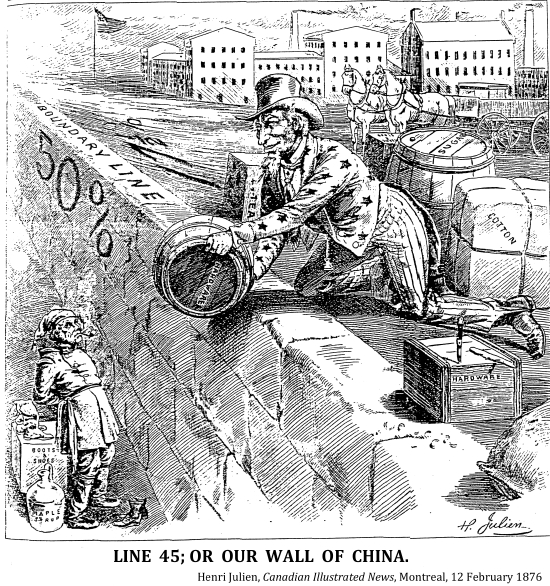
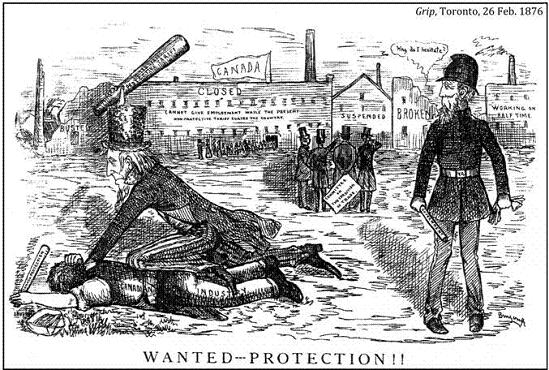
"No country is great with only one industry. Agriculture is our most important, but it cannot be our only staple. All men are not fit to be farmers; there are men with mechanical or manufacturing genius who desire to become operatives or manufacturers of some kind, and we must have means to employ them. . .
When there is a large body of successful and prosperous manufacturers, the farmer will have a home market for his produce, and the manufacturer a home market for his goods. . . We have no manufacturers here. We have no work-people; our work-people have gone off to the United States. There Canadian artisans are adding to the strength, to the power and to the wealth of a foreign country instead of adding to ours."
John A. Macdonald, 1878
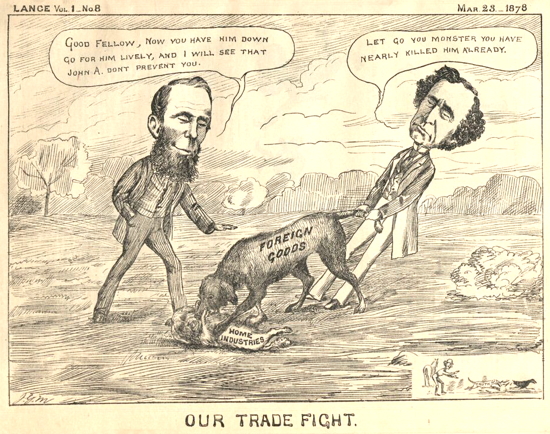
The Lance, Toronto, 23 March 1878
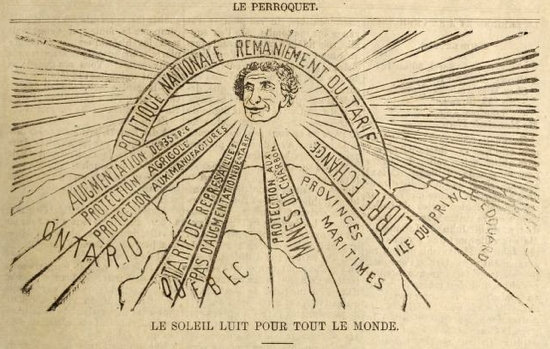
THE SUN SHINES FOR EVERYONE
Le Perroquet, 7 September 1878
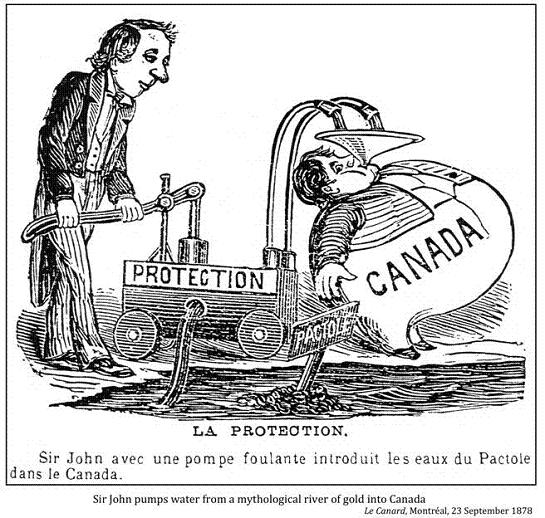
The time has arrived, I think, when it will become our duty to decide whether the thousands of men throughout the length and breadth of this country who are unemployed, shall seek employment in another country, or shall find it in this Dominion; the time has arrived when we are to decide whether we will be simply hewers of wood and drawers of water; whether we will be simply agriculturalists raising wheat, and lumbermen producing more lumber than we can use, or Great Britain and the United States will take from us at remunerative prices; whether we will confine our attention to the fisheries and certain other small industries, and cease to be what we have been, and not rise to be what I believe we are destined to be under wise and judicious legislation, or whether we will inaugurate a policy that will, by its provisions, say to the industries of the country, we will give you sufficient protection; we will give you a market for what you can produce…The time has certainly arrived when we must consider whether we will allow matters to remain as they are, with the result of being an unimportant and uninteresting portion of Her Majesty’s Dominions, or will rise to the position, which I believe Providence has destined us to occupy, by means of which, I believe, though they may be over sanguine, which the country believes are calculated to bring prosperity and happiness to the people, to give employment to the thousands who are unoccupied, and to make this a great and prosperous country, as we all desire it will be.
Sir Leonard Tilley, Minister of Finance, House of Commons Debates, 14 March 1879.
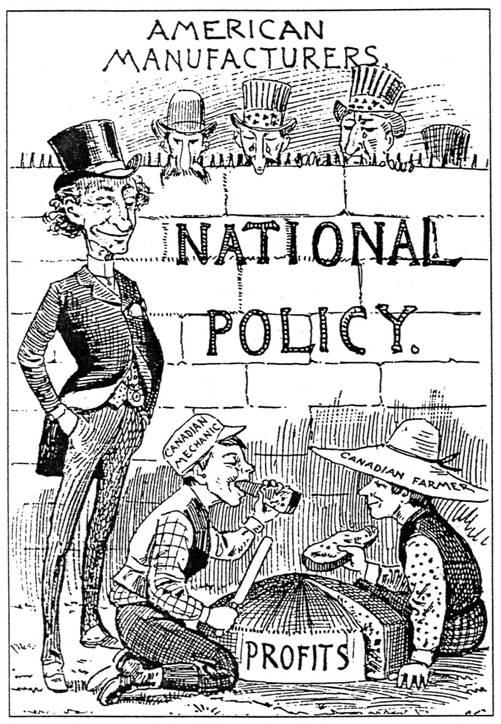
American Manufacturers National Policy. LAC C-017233, ca. 1879
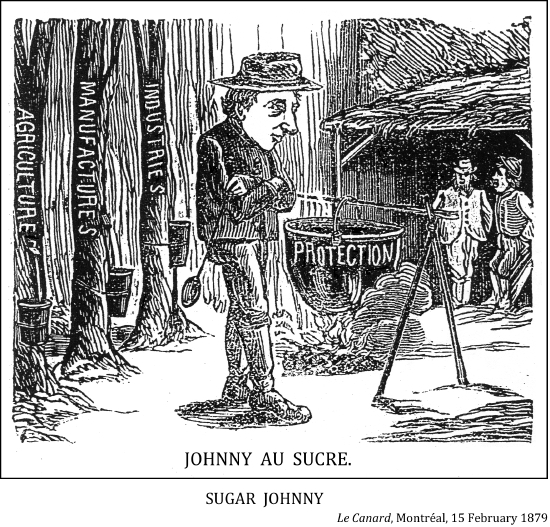
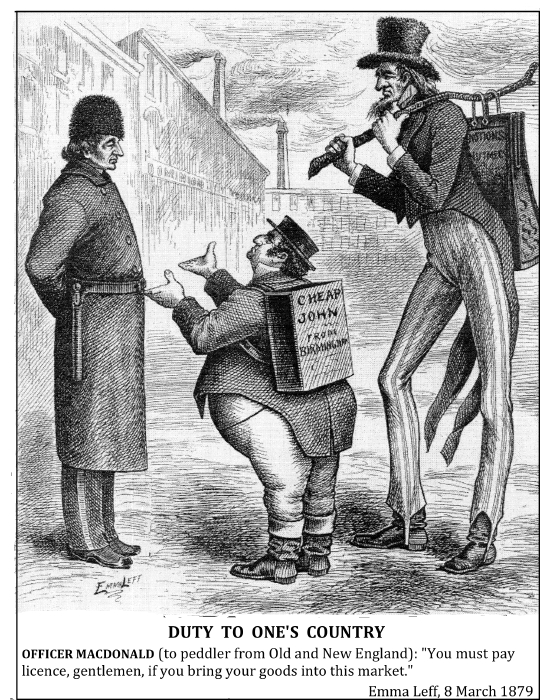
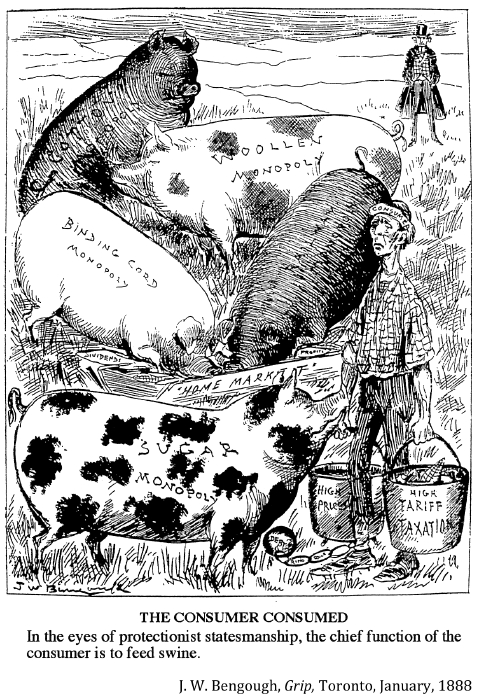
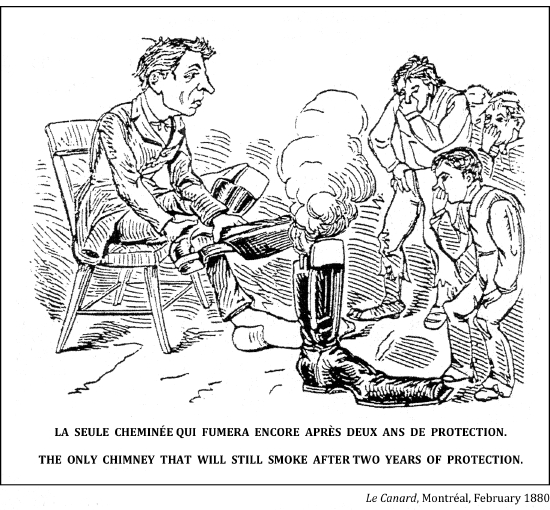
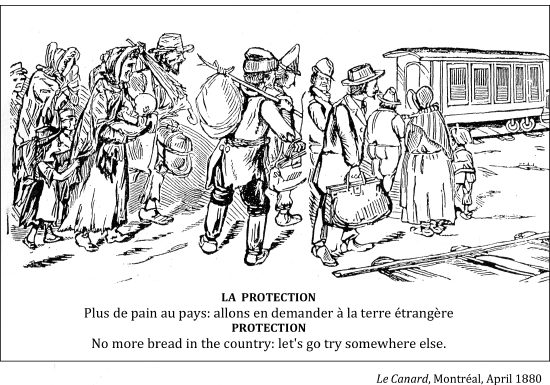
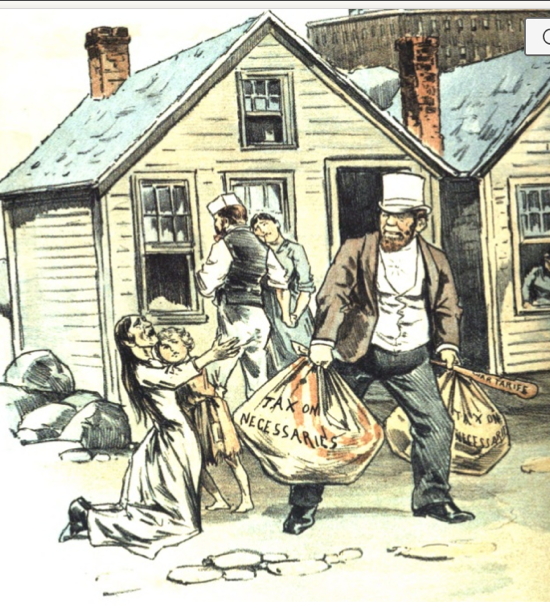
Puck, New York, 15 August 1888
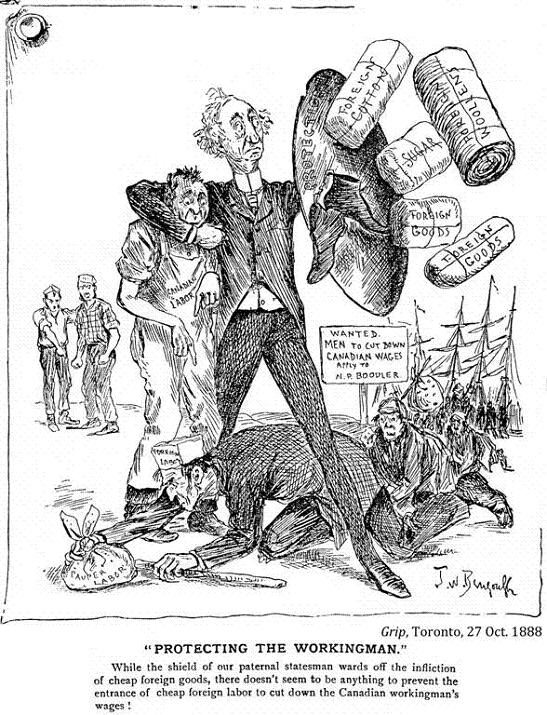
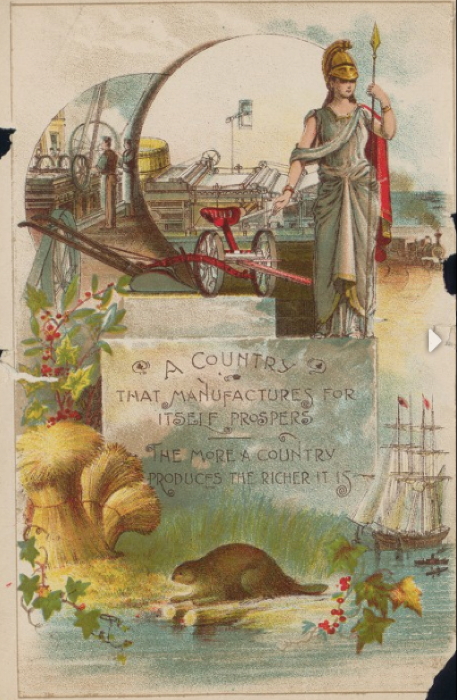
Canadian Manufacturing Association, Toronto, Thomas Fisher Rare Books Library, broadsides:CAP00869, 1890
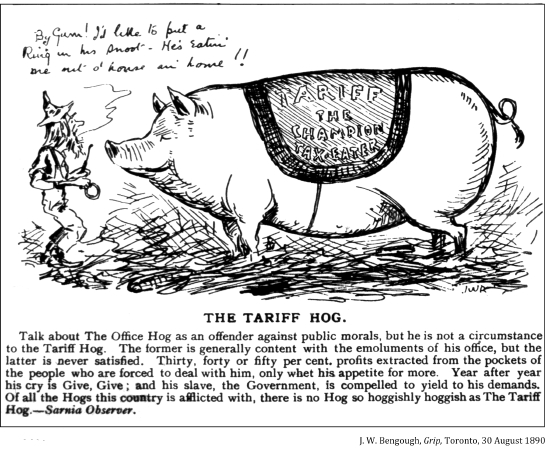
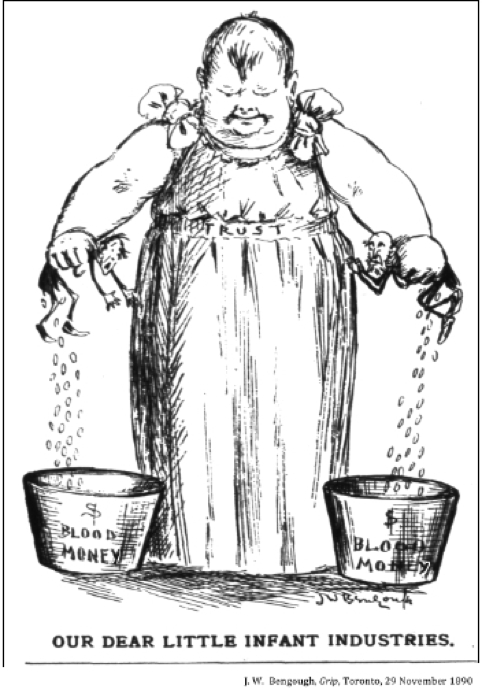

Metropolitan Toronto Public Library, Baldwin Room
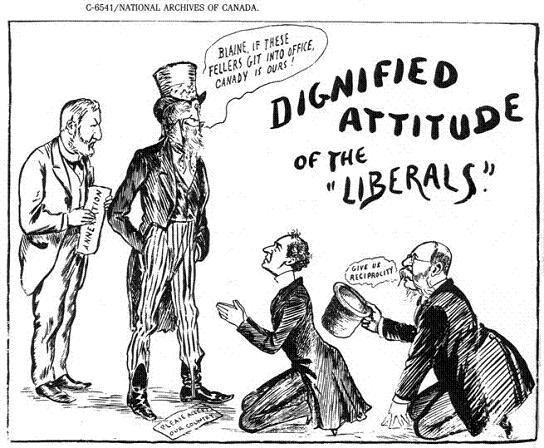
James Blaine was the American Secretary of State in 1891. Richard Cartwright [right] was a strong Liberal party supporter of reciprocity.

Library and Archives Canada, e010782414
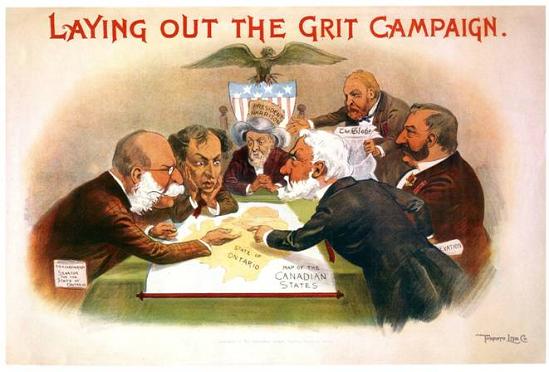
Public Archives of Ontario
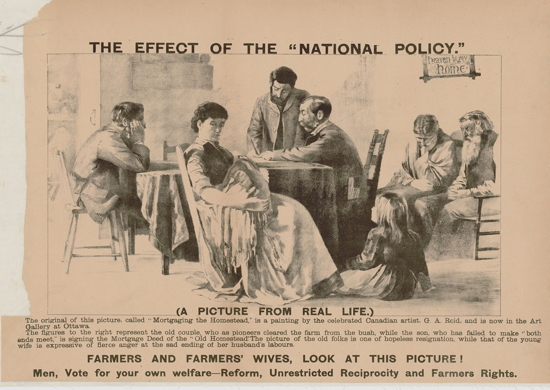
The Effect of the "National Policy" : 1891 electoral campaign. LAC, Acc. No. 1983-33-1094, George Agnew Reid, 1891
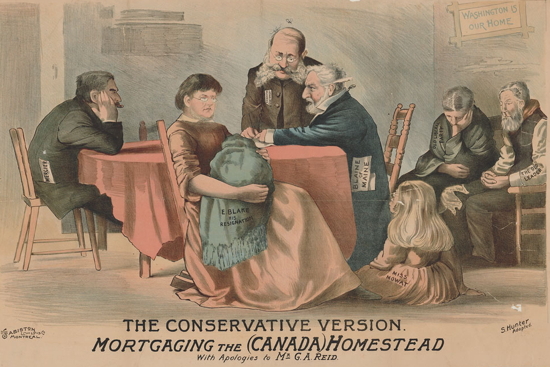
The Conservative Version - Mortgaging the (Canadian) Homestead with Apologies to Mr. G. A. Reid : 1891 electoral campaign. LAC, Acc. No. 1983-33-1090, Samuel Hunter, 1891
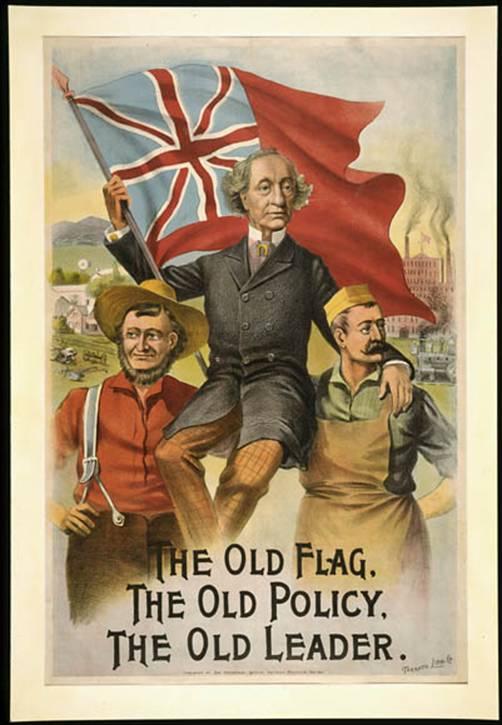
Library and Archives Canada, C006536k
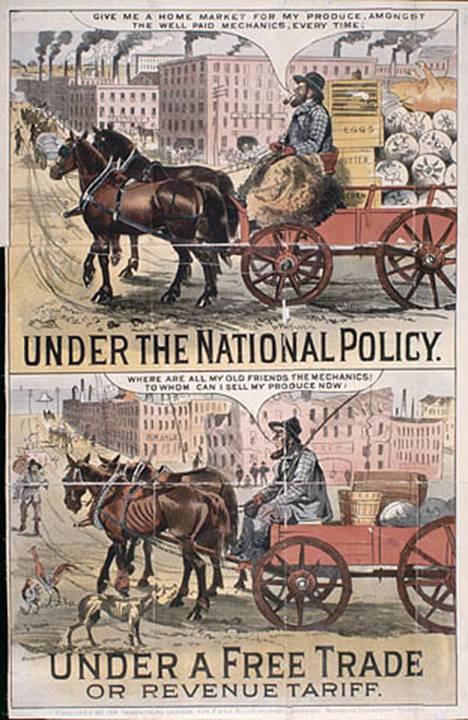
Library and Archives Canada, C-95470
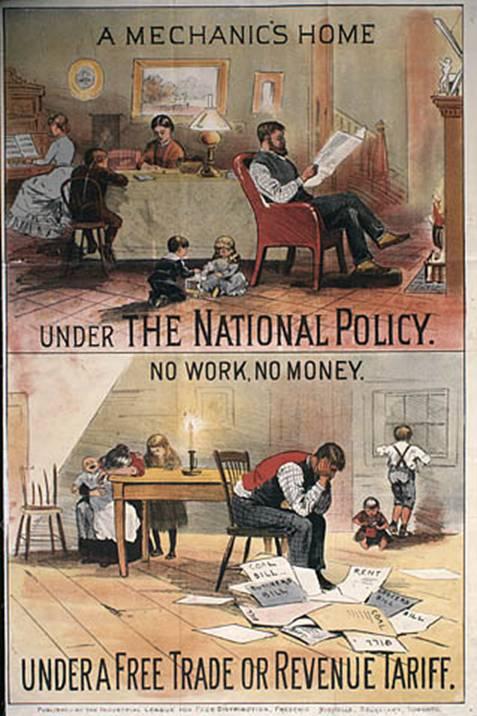
Library and Archives Canada, C095466
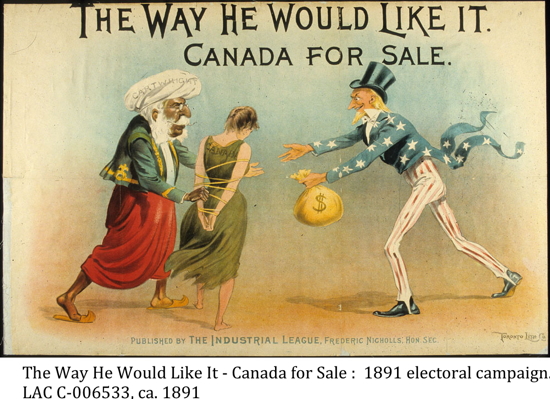
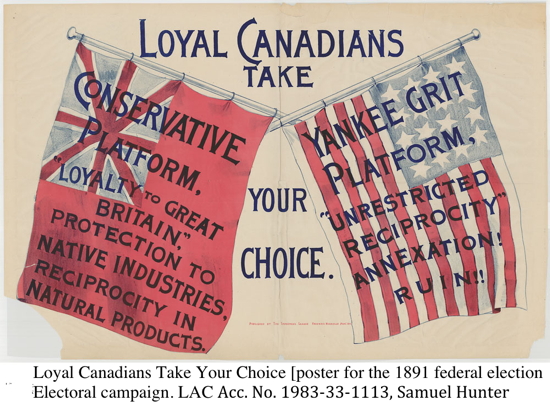
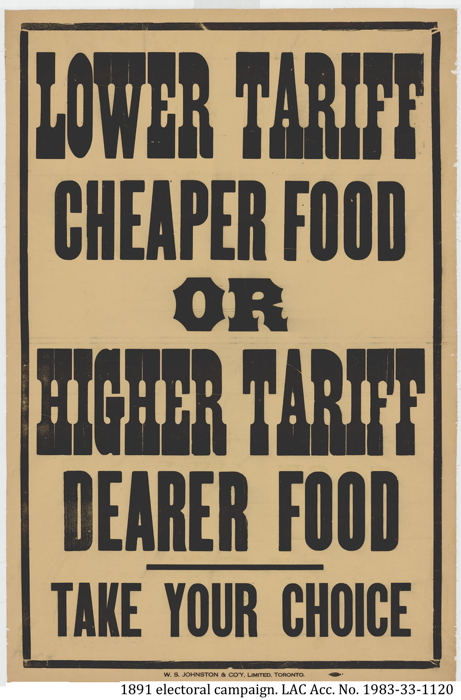
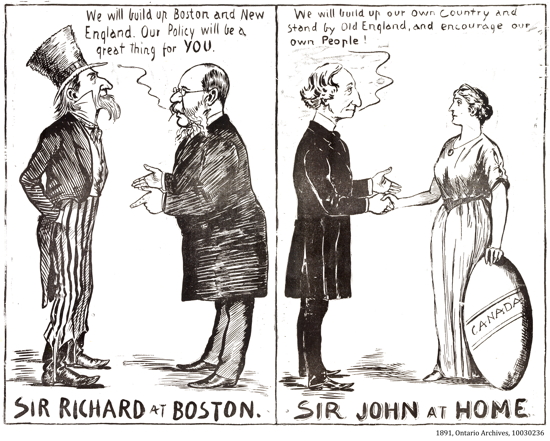
"Canadians are fast sinking into the position of being mere hewers of wood and drawers of water for the great nation dwelling to the south of us . . . So we inaugurated the National Policy. . . Almost as if by magic . . . stagnation and apathy and gloom, aye, and want and misery too, gave place to activity and interprovincial prosperity."
Sir John A. Macdonald, speech, 7 February 1891
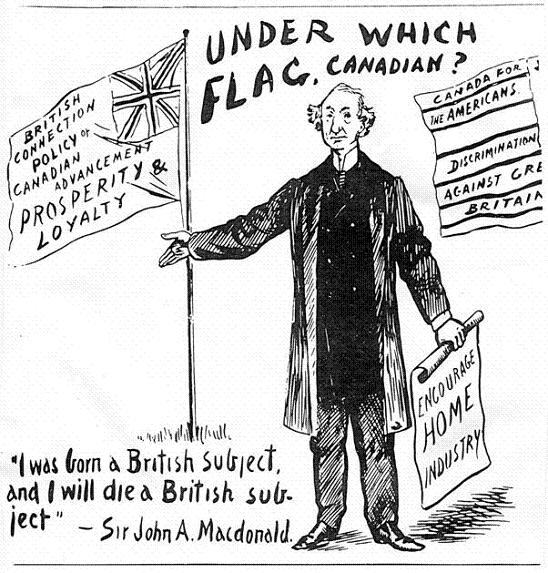
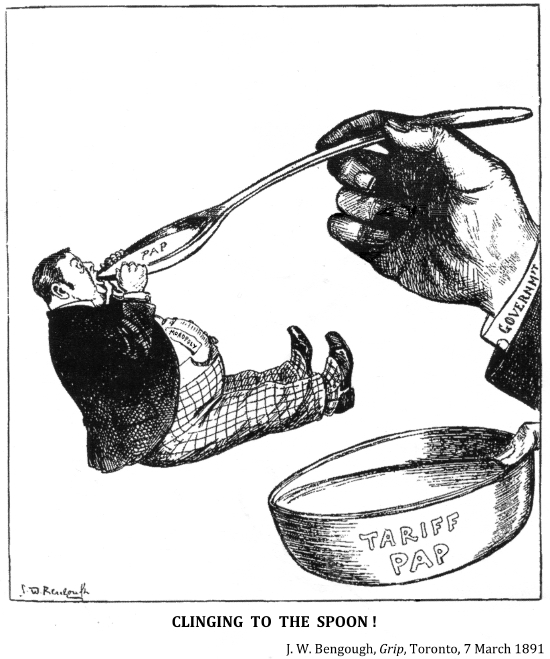
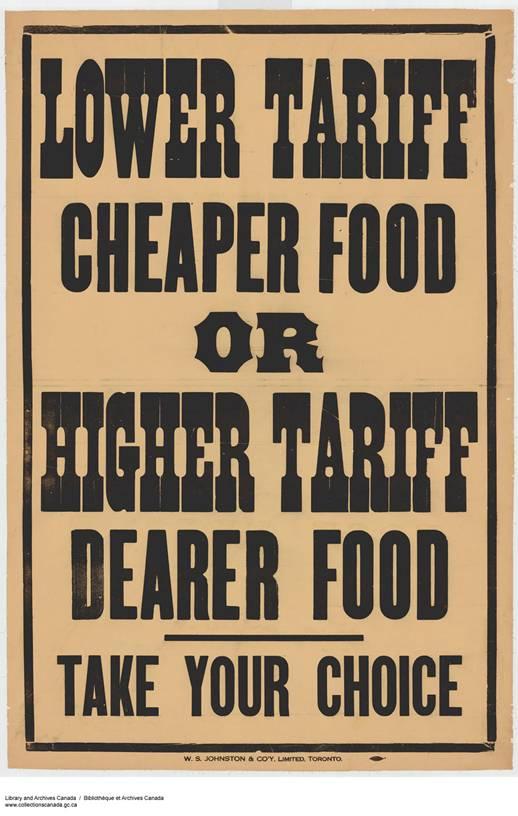
Library and Archives Canada, e010782436-8v
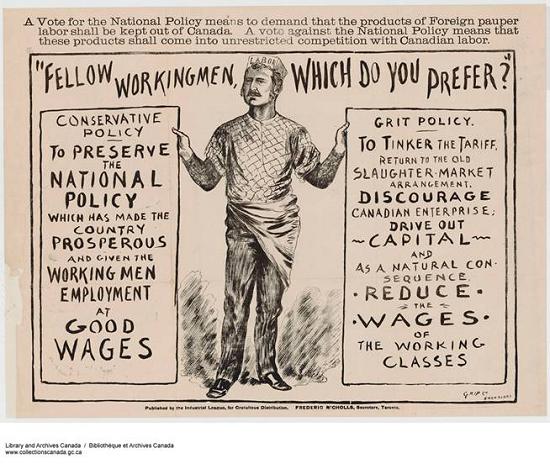
A Vote for the National Policy 1891

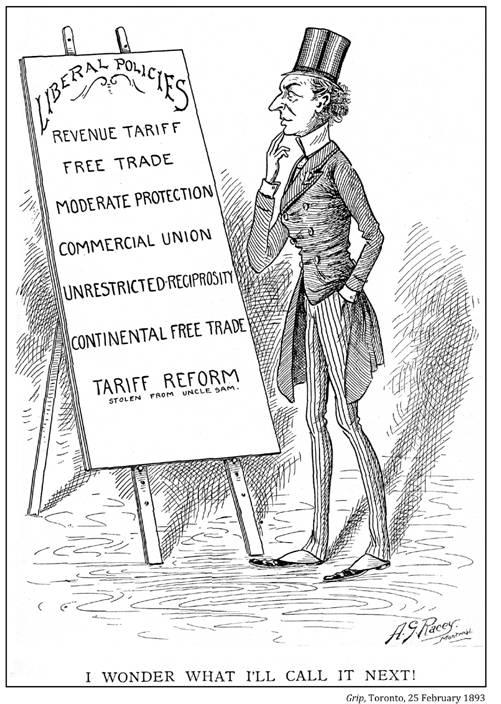

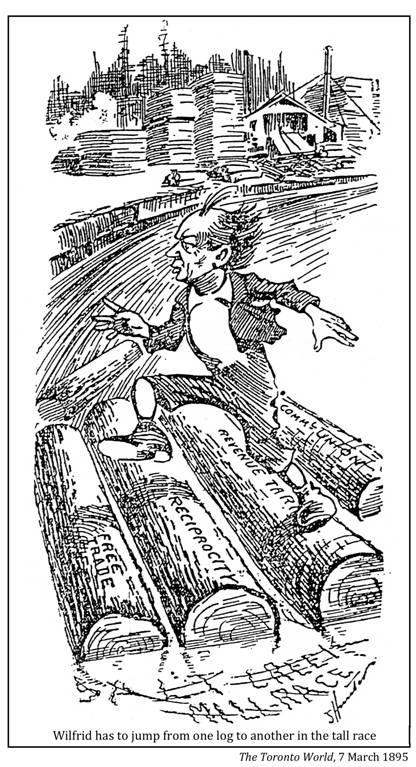
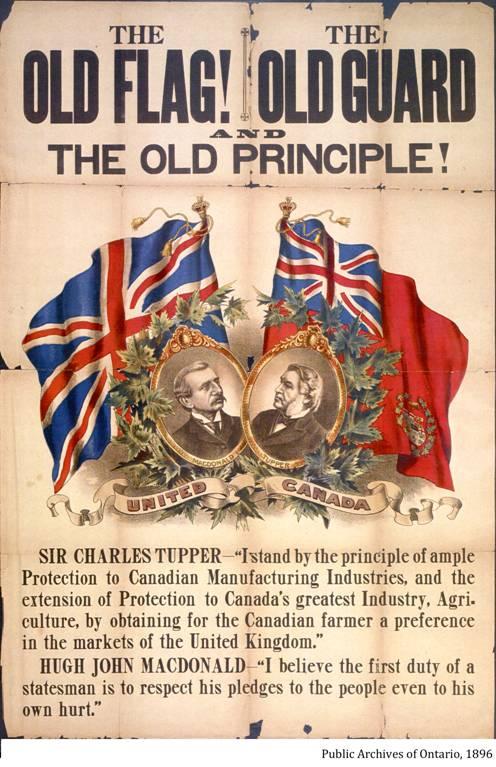
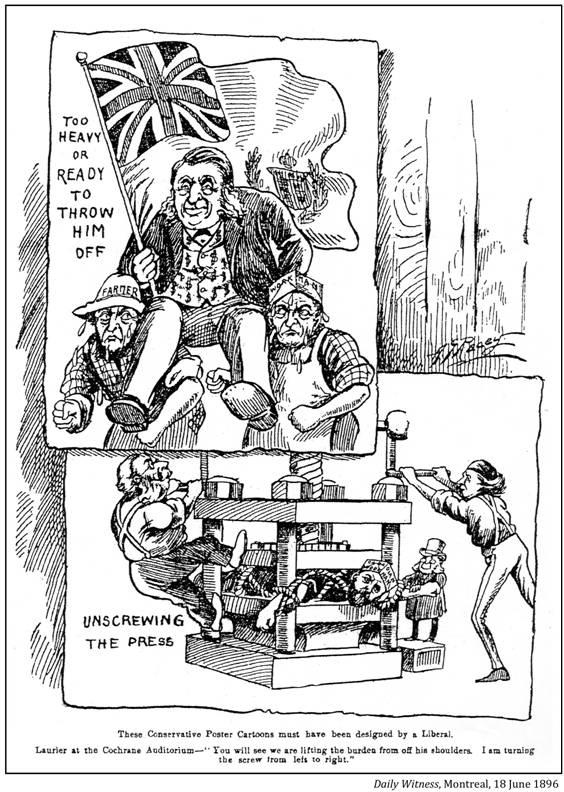
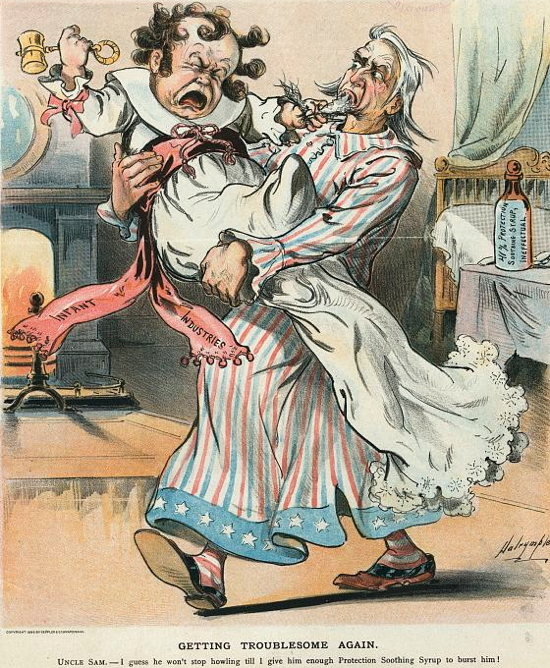
Infant Industries, Louis Dalrymple, Puck, New York, 30 December 1898, Library of Congress 2012648499
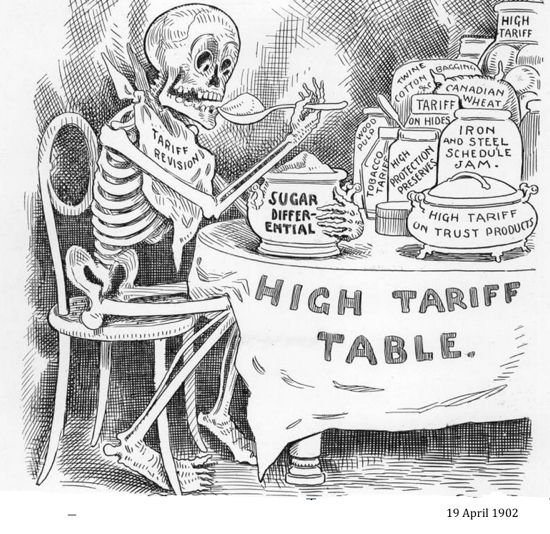
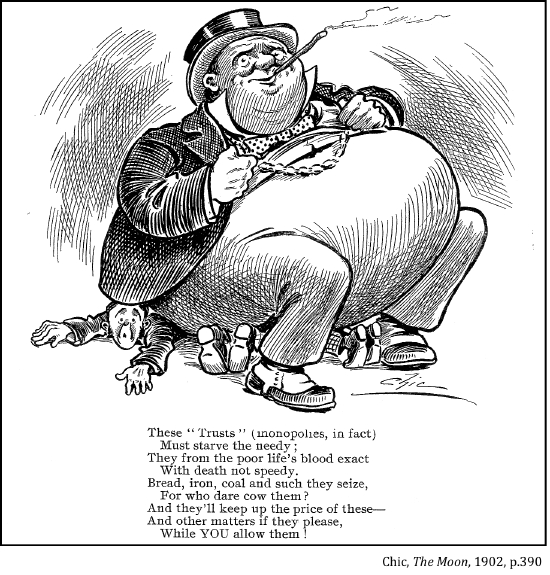
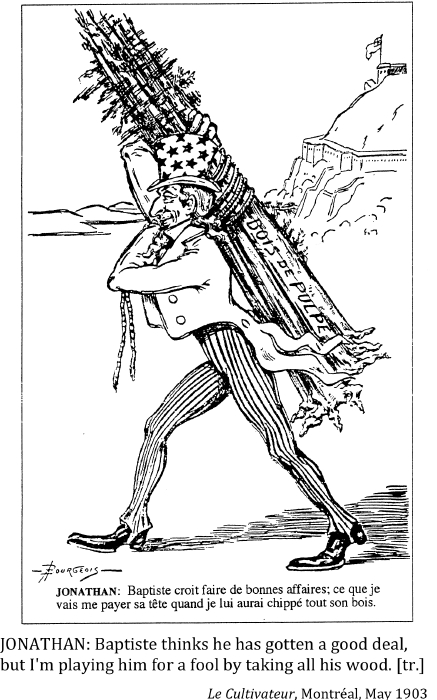
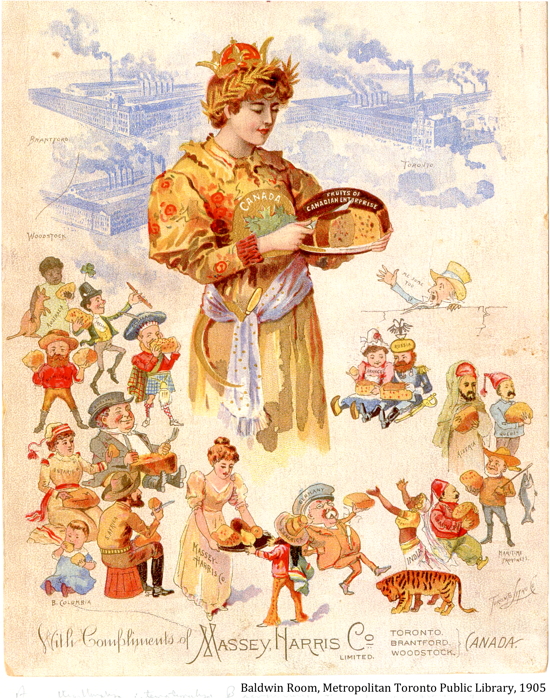
"When the workers of Canada wake up they will find that Protection is only one among the several economic fangs fastened in their "corpus vile" by the little group of railroad men, bankers, lumbermen and manufacturing monopolists who own their country."
J. A. Hobson, Canada Today, 1906
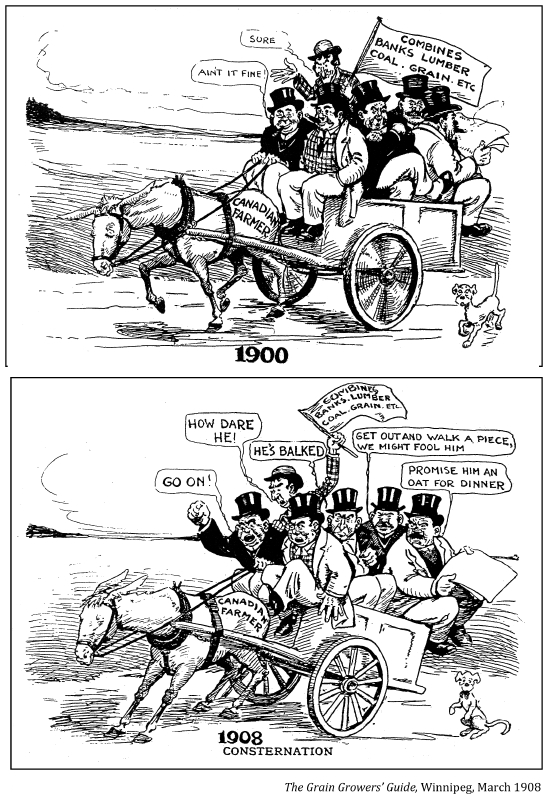
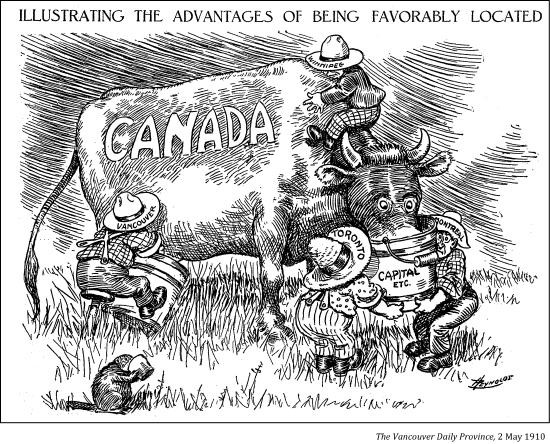
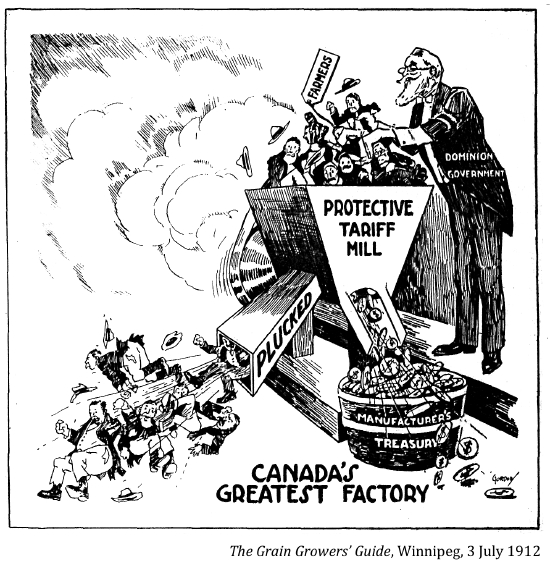
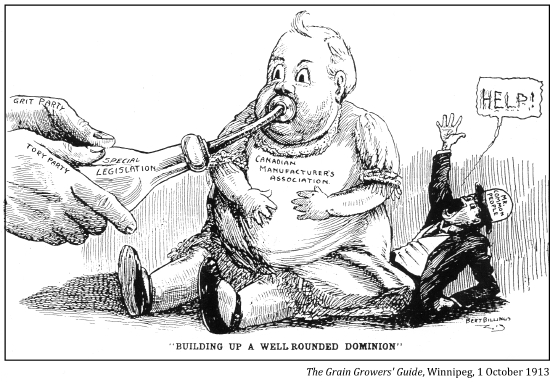

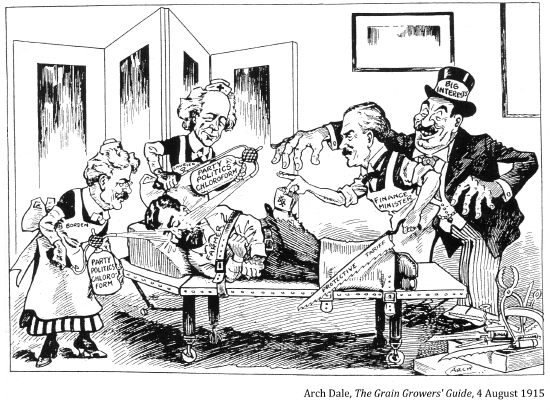
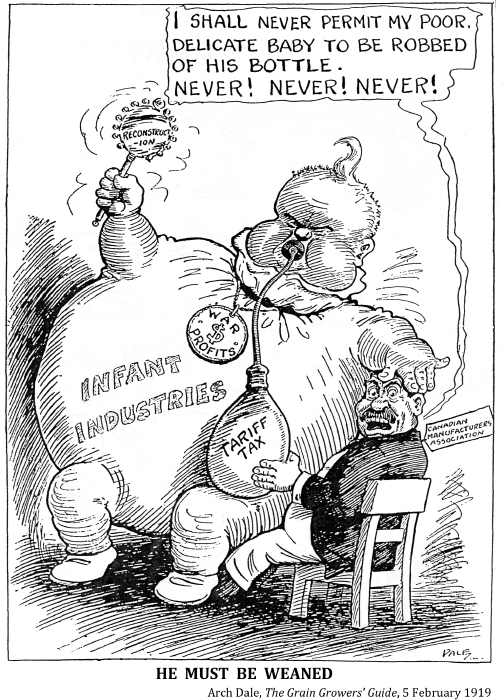
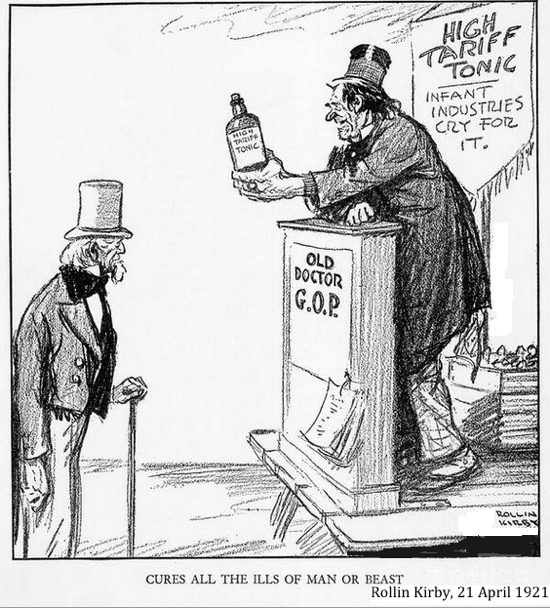
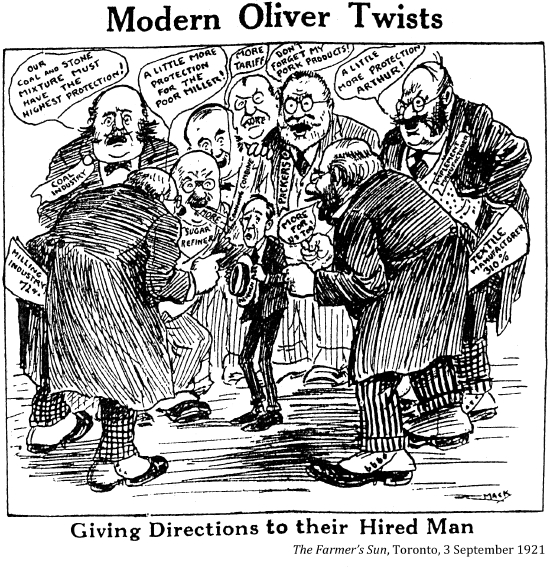
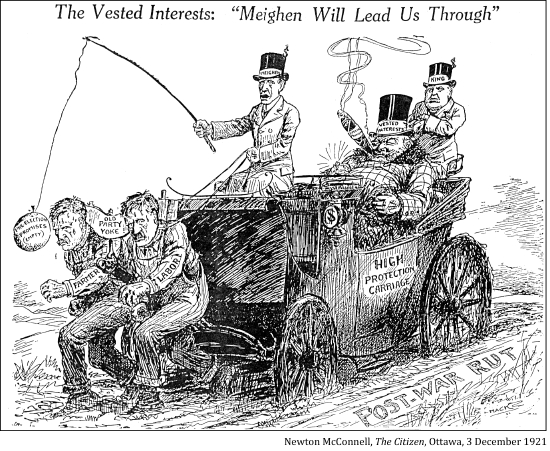

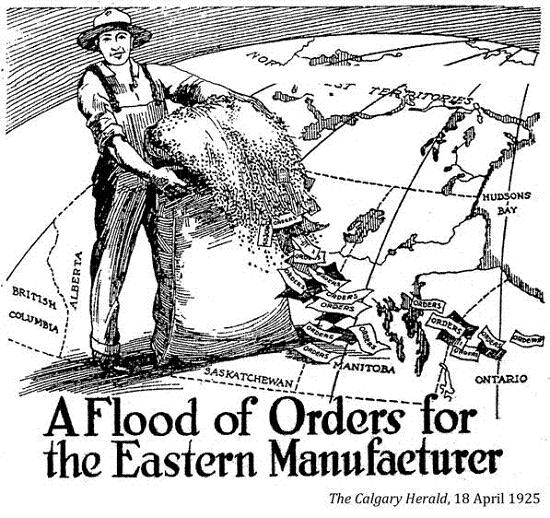
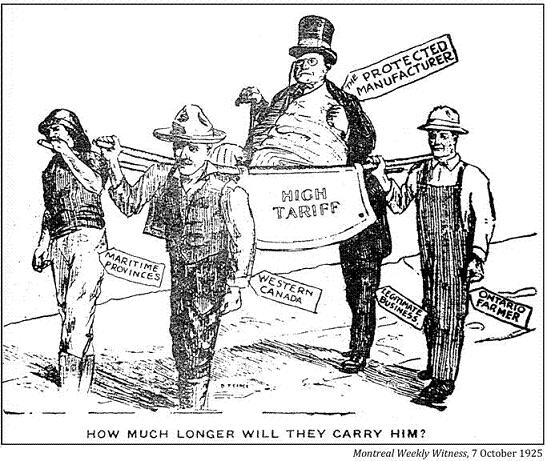
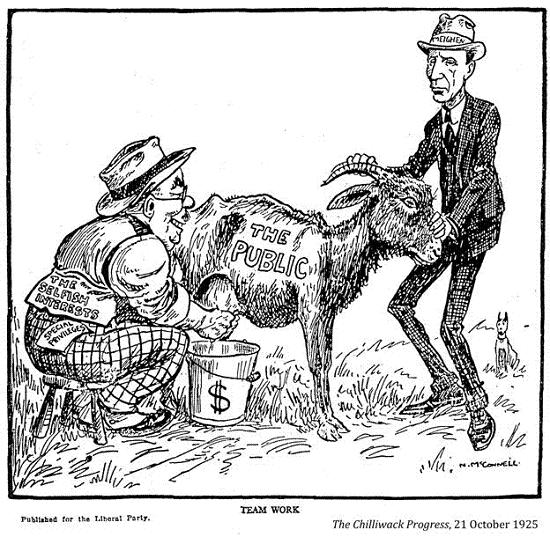
"Quebec and Ontario conceived the idea of having colonies . . . in which they could sell their manufactured goods under protective tariff."
Milton Neil Campbell, Progressive MP, House of Commons Debates, 1927
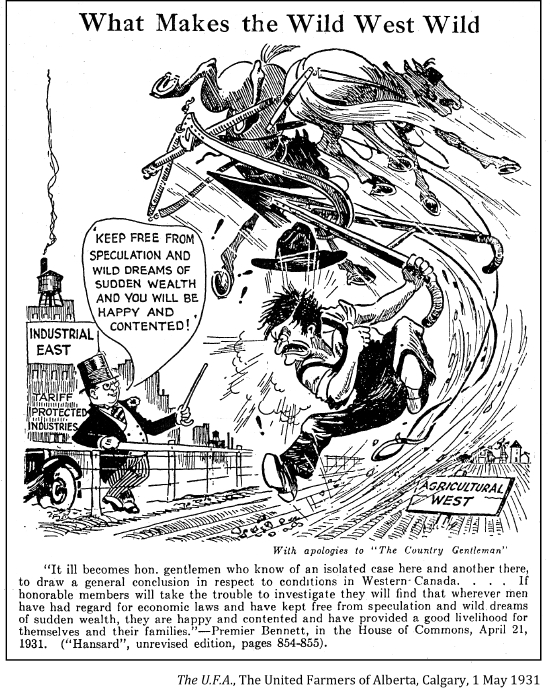
"We have been content since 1922 to send out of Canada into other lands, free, the resources of the country and bring back from them the manufactured materials. Thousands in the United States have been given employment fabricating Canadian goods. They've got the jobs and we've got the soup kitchens."
Richard B. Bennett
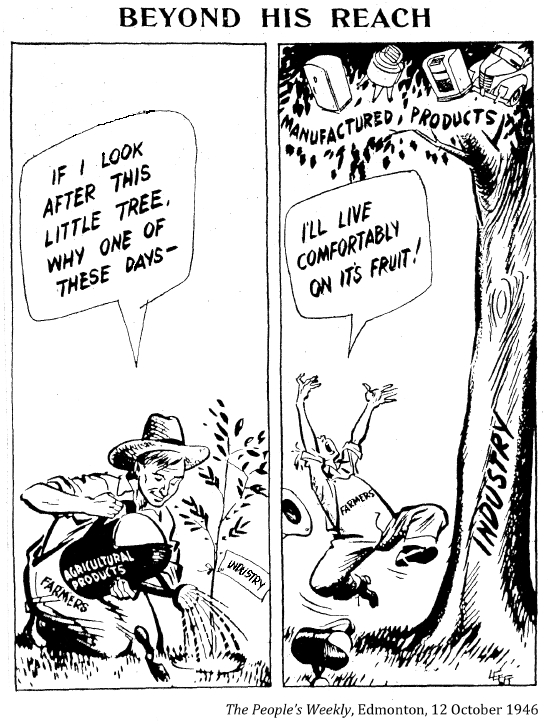
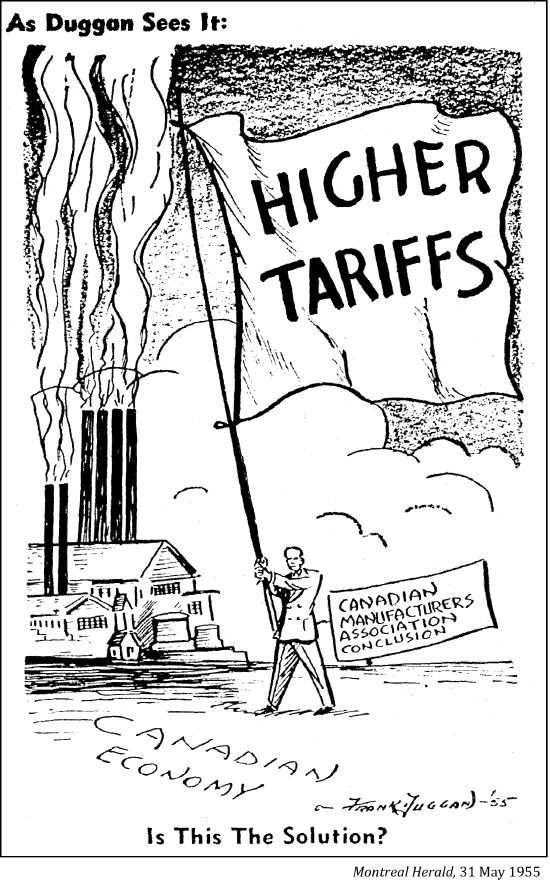

"Macdonald used the high tariffs of the National Policy to create a partnership with a host of manufacturing firms whose survival depended on having ongoing protection supplied by a friendly government in Ottawa. . . Laurier was well steeped in the view that Macdonald's National Policy had unconsciously raised the cost of living to subsidize a privileged manufacturing class."
Michael Bliss
|





























































